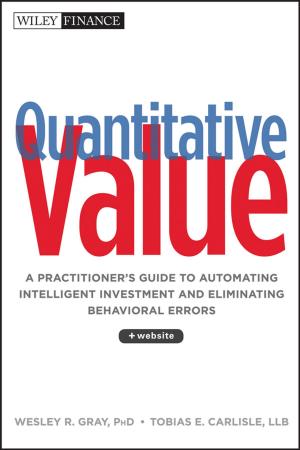| Author: | Jean-Charles Pomerol | ISBN: | 9781118588062 |
| Publisher: | Wiley | Publication: | December 27, 2012 |
| Imprint: | Wiley-ISTE | Language: | English |
| Author: | Jean-Charles Pomerol |
| ISBN: | 9781118588062 |
| Publisher: | Wiley |
| Publication: | December 27, 2012 |
| Imprint: | Wiley-ISTE |
| Language: | English |
Making a decision, of any importance, is never simple. On the one hand, specialists in decision theory do not come within the reach of most policy makers and, secondly, there are very few books on pragmatic decision that are not purely anecdotal. In addition, there is virtually no book that provides a link between decision-making and action.
This book provides a bridge between the latest results in artificial intelligence, neurobiology, psychology and decision-making for action. What is the role of intuition or emotion? What are the main psychological biases of which we must be wary? How can we avoid being manipulated? What is the proper use of planning? How can we remain rational even if one is not an expert in probabilities? Perhaps more importantly for managers, how does one go from decision to action? So many questions fundamental to the practice of decision-making are addressed.
This book dissects all issues that arise almost daily for decision-makers, at least for major decisions. Drawing on numerous examples, this book answers, in plain language and imagery, all your questions. The final chapter takes the form of a brief reminder - everything you have to remember to be a good decision-maker.
Making a decision, of any importance, is never simple. On the one hand, specialists in decision theory do not come within the reach of most policy makers and, secondly, there are very few books on pragmatic decision that are not purely anecdotal. In addition, there is virtually no book that provides a link between decision-making and action.
This book provides a bridge between the latest results in artificial intelligence, neurobiology, psychology and decision-making for action. What is the role of intuition or emotion? What are the main psychological biases of which we must be wary? How can we avoid being manipulated? What is the proper use of planning? How can we remain rational even if one is not an expert in probabilities? Perhaps more importantly for managers, how does one go from decision to action? So many questions fundamental to the practice of decision-making are addressed.
This book dissects all issues that arise almost daily for decision-makers, at least for major decisions. Drawing on numerous examples, this book answers, in plain language and imagery, all your questions. The final chapter takes the form of a brief reminder - everything you have to remember to be a good decision-maker.















